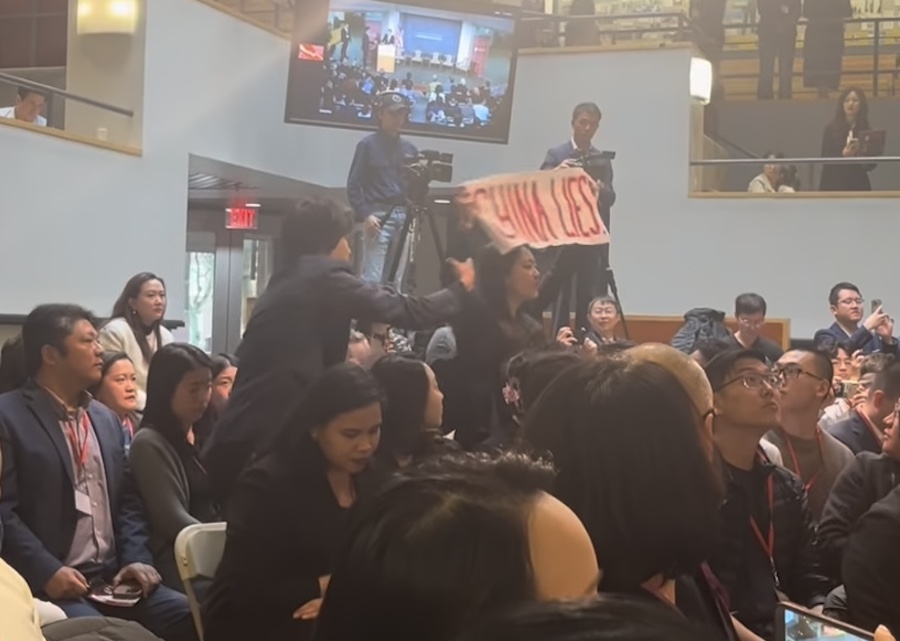 By George Hutchens
By George Hutchens
The Venerable Tashi sat quietly in Homosassa.
He was thousands of miles from home in India, and 42 years removed from gaining political asylum there from his Chinese-governed Tibet. He was searching for the right English phrase to explain his impressions of America.
“We like pizza,” he finally said, grinning.
Citrus County, welcome to the world of Tibetan monks in 2003. Tashi, 45, and three young colleagues are staying at Citrus Spirit Yoga Center in Homosassa, on a five-day stop of a six-month tour of the United States.
They hoped to convey a simple and ancient Buddhist message at Central Florida Community College’s Lecanto campus on Friday night: achieve world peace through more, open conversation.
They spent 40 minutes Friday night delivering that message at CFCC before taking questions from the audience.
Tashi is of Tibetan heritage and speaks Tibetan and English.
He is on his third trip to the United States. His English is broken, and he often stops in mid-sentence, quietly mumbles “casiguli,” or “what is that word?” in Tibetan, then continues.
Tashi’s group was first set to visit a yoga center in McIntosh, a tiny town near Gainesville, but that visit was cancelled. Steven Marches, a Spring Hill Buddhist, found out about the cancellation one day while surfing the Internet.
He called, contacted Kim Isler at Citrus Spirit, and here they are.
Now Tashi and Ven. Tenzin Chophel, 30, born in India, and Ven. Mendbayar, 22, and Ven. Adiyaragchaa, 22, both born in Mongolia, are in Citrus County, keeping quiet but staying busy.
They are creating a sand mandala painting, a five-day project. Tashi said the painting is an expression of the deep compassion Buddhists seek.
“People come to see us, and see the sand mandala painting,” he said. “It is of deep meaning for us, an expression of what our Buddhist beliefs mean.”
But they still live in 2003, and their prayer reflects the world’s unstable status.
One idea embraced by the monks in the post 9/11 world is known as the Yamantaka Deity. Tashi writes that it is the belief that to lessen violence, disease, disintegration, mistrust and communal hatred, all the negatives of the world will be pacified through Yamantaka’s collective energy.
“I don’t understand why this country will act so fast, and go to Iraq,” he said. “No time to listen.”
In addition, the monks come to explain — and, to some degree, promote — their religion and the need for better education in their homelands.
He said they pick up a few things from Americans, too.
Like pizza.
But it is deeper than that. Americans, including those he has met in Citrus County, have special qualities.
“They are very open, very friendly,” he said. “They analyze, and ask many questions.”
On his first trip here, in 1986, he said people didn’t know what Buddhism or Tibet were.
“Now, everybody knows,” he said. They probably get some help from Buddhist-practicing actors like Richard Gere.
“Before, they would say, ‘Where in this world is Tibet?’ Now they know us, and they have a good understanding of Buddhist philosophy.”
Which makes him very proud.









